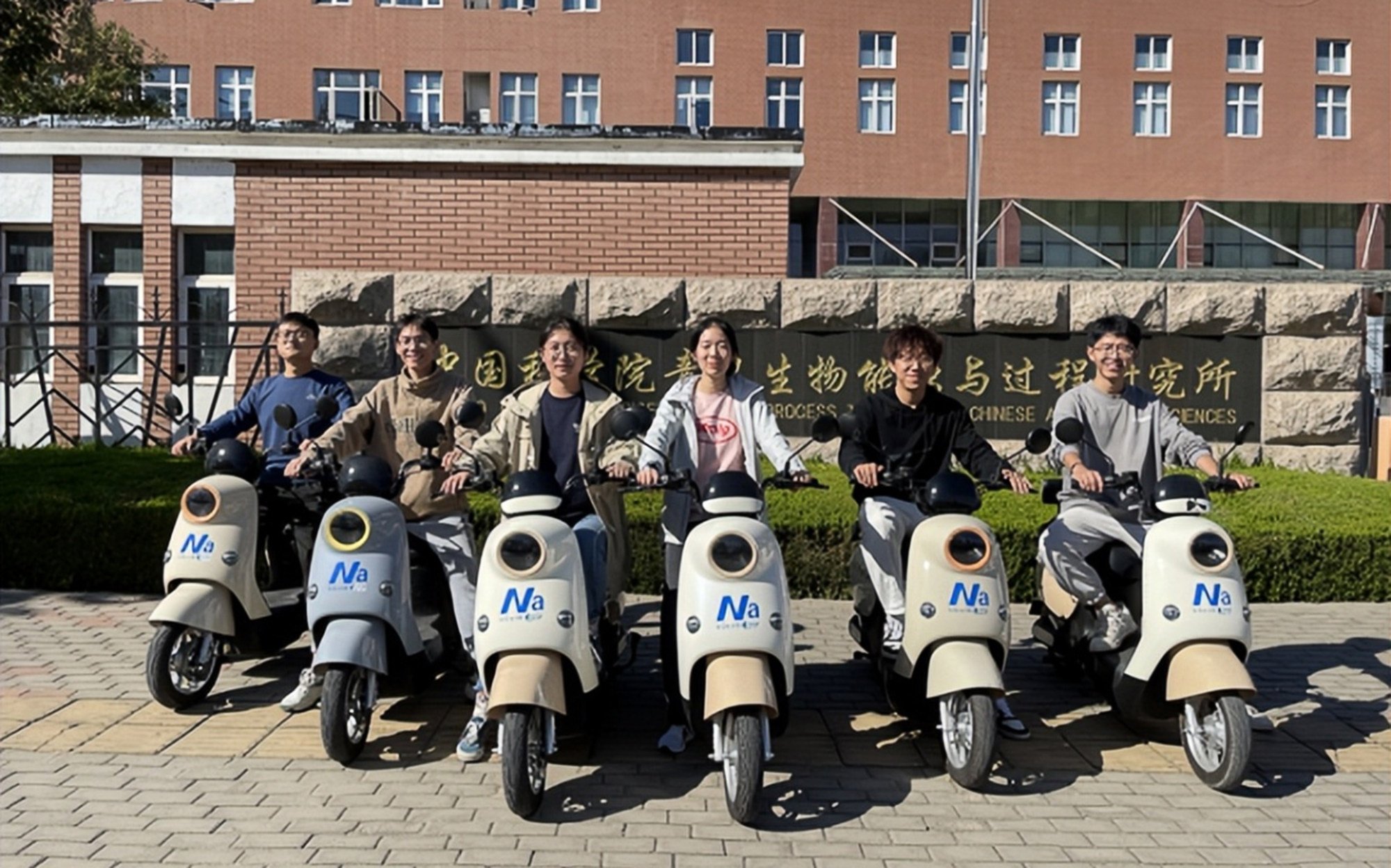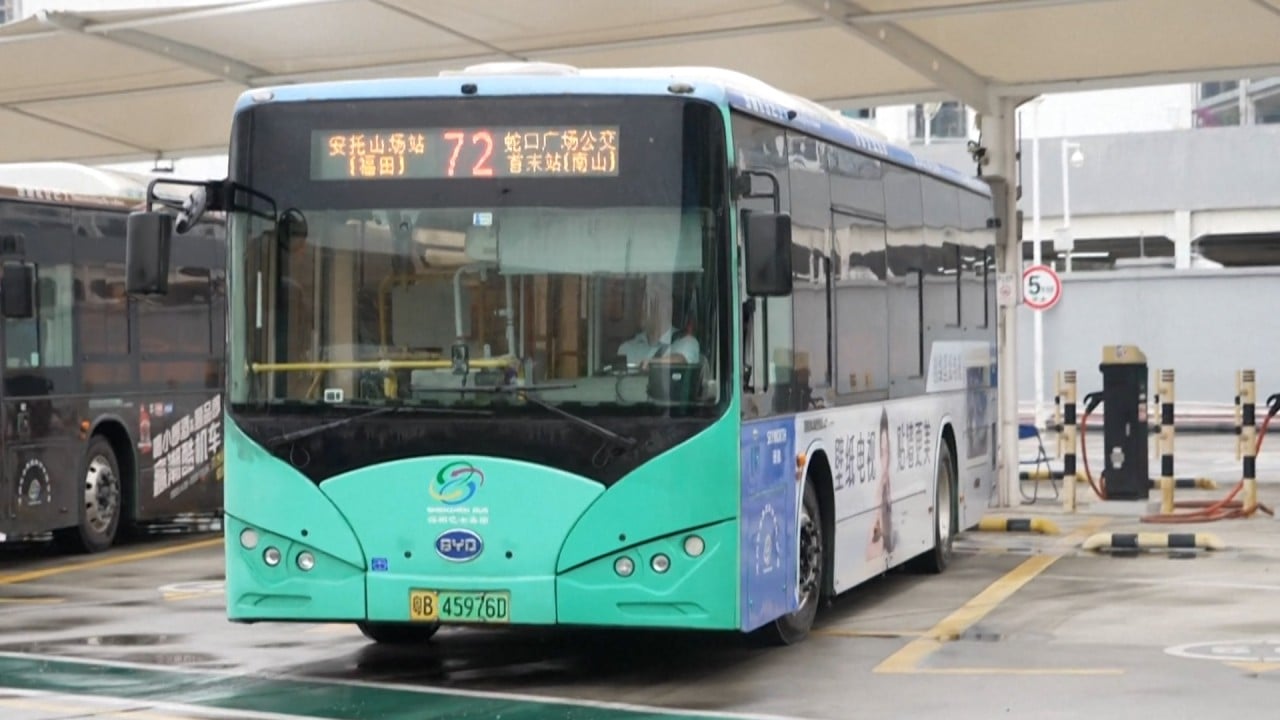
Sodium batteries: is China sparking a new revolution in the electric vehicle industry?
- The EV industry is set to be the first to benefit as Chinese companies start mass-producing sodium-ion batteries
- The easy access to sodium worldwide means production of the new batteries is much easier than the existing lithium-ion models
Qiu Guocheng, co-founder of sodium-ion battery company Beijing Xuexiong Technology, said on Tuesday that the batteries had features that surpassed “almost all battery types”.
The sodium-ion batteries can operate at almost full capacity in cold temperatures, Qiu said – as low as minus 30 degrees Celsius (-22 Fahrenheit).
They also have “an average life of more than eight years” and can be charged for 3000 cycles compared to the standard 500 of lithium-ion batteries, according to Qiu.
A listing of Xuexiong’s sodium-ion scooter batteries on Taobao said its lifespan was five times longer than standard lithium-ion batteries.
With most food delivery drivers in China relying on electric scooters to make their deliveries in all sorts of weather, the advertisements for the battery listings target this demographic.
“The electric two-wheeled vehicle field is one with relatively high consumption frequency, and buyers have high expectations for sodium batteries,” Qiu said.
Batteries are the most expensive component of electric vehicles, having a big effect on production cost and retail price.
That is why it has become necessary to find more stable alternatives.
Meanwhile sodium, a metal well-known for its place in table salt, is the world’s most abundant alkali metal throughout the Earth’s crust.
That is what makes it so appealing for the battery industry.
Almost every country would be able to build its own sodium power battery plant if the technology spread globally.
The cheaper production of sodium-ion batteries could then help stabilise the cost of electric vehicles and push forward their adoption.

Various companies around the world are researching ways to make sodium-ion batteries, but there are some challenges to overcome.
Batteries containing sodium ions tend to have a lower energy density because sodium ions are larger than lithium ions, which means the sodium batteries store less energy per unit of weight.
However, a team of researchers at the Qingdao Institute of Bioenergy and Bioprocess Technology (QIBEBT) told Chinese-language news outlet Science Times late last month that they might have overcome this issue.
The researchers have been working on sodium batteries for over a decade, and last month they successfully powered electric scooters with 60 volt solid-state sodium-ion batteries.
Their battery, which the team said was built with completely individual property rights, has an energy density of up to 160 watt hours per kilogram, which they said was similar to comparable lithium batteries.
“The nature of sodium-ion batteries has caused many difficulties in the development process of replacing lithium-ion batteries,” Zhao Jingwen, a researcher at QIBEBT, told Science Times.
But he said their “innovatively developed” battery was successful in improving energy density while keeping the weight and cost of the battery down.
EV boom unlikely to ease Asia’s resource vulnerability, analysts warn
Their 60 volt 20 amp hour battery weighs 10kg (22lbs) – comparable to standard lithium-ion scooter batteries – and has a cruising range of 70km (43 miles).
Also their battery is solid-state, which is safer than standard batteries with liquid interiors which can burst into flames and explode in an accident or malfunction.
When performing a nail penetration test – in which a nail is inserted into a battery in order to short circuit it – the team’s battery did not smoke or catch fire like many lithium-ion batteries do.
Existing lithium-ion battery production lines could also be repurposed to produce sodium-ion batteries, which could help bring down the production cost, Zhao was quoted as saying.
Batteries available to consumers, like those by Xuexiong, still cost more than lithium-ion batteries. However, Zhao said that once production amped up, the price of the batteries would be lower.
The team said their research showed a promising future for the application of the batteries into the vehicle market.
Li said Niu had to raise the retail price of its scooters by 7 per cent, and other competitors in the market had to increase prices by 9 to 15 per cent.
In light of the price increases, he said Niu had temporarily turned to the less efficient but cheaper lead-acid batteries to meet consumer needs. However, the company has long-term plans to fix its cost issue.
Li said that Niu was planning to launch its first sodium-ion battery-powered vehicle sometime this year. An announcement of the new product has yet to be made.
“As a new star in new energy, sodium-ion batteries are accelerating on the road to industrialisation,” Cui Guanglei, director of the Solid Energy System Technology Centre at QIBEBT, told Science Times.
He said China, the world’s largest producer of sodium metal, was a “first-mover” in the development of these batteries, and was at the “forefront of the world”.
“Second- and third-generation solid-state sodium-ion batteries will have higher cell energy density and life cycle,” Cui said.
On top of powering electric vehicles, sodium-ion batteries also have promising applications in energy storage.
Zhao told Science Times he predicted hundreds and thousands of sodium-ion powered scooters would enter into the Chinese market next year, and that the market share of these batteries in smaller vehicle models “will reach 30 to 40 per cent, or even higher”.



